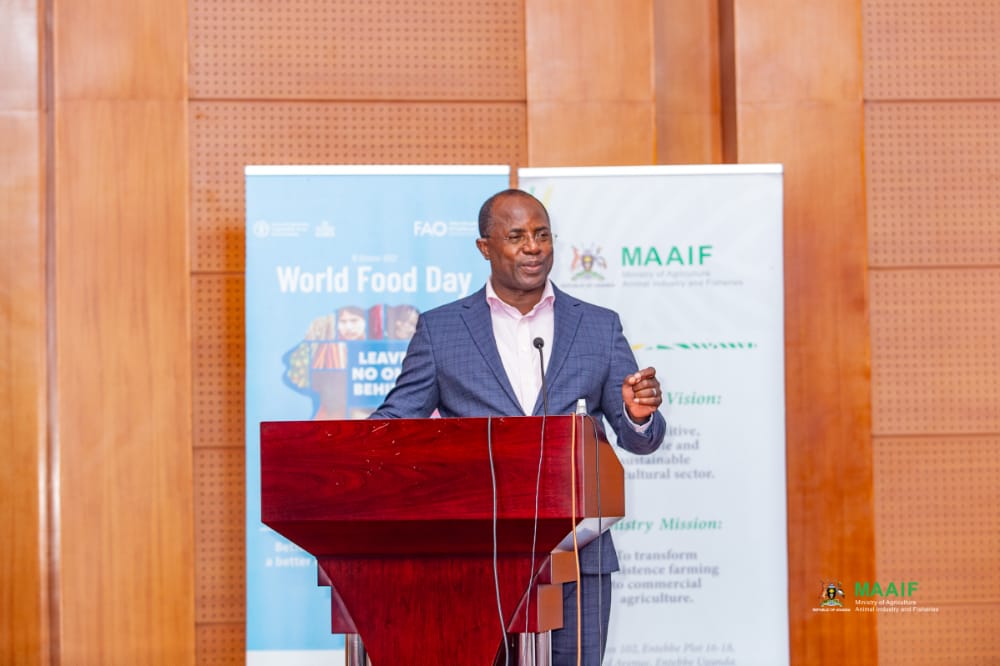The National Environment Management Authority (NEMA) has dismissed recent media reports alleging that a section of the restored Lubigi wetland has been allocated to an investor.
In a press statement released on Sunday, NEMA clarified that no restored area has been or will be given to private entities, reaffirming that the ongoing wetland restoration efforts are solely aimed at rehabilitating Lubigi to fulfil its ecological and social functions.
The clarification follows public concern after reports surfaced earlier this week, suggesting that part of the wetland in Bulenga had been earmarked for commercial use.
The restoration operation, which kicked off in Kampala, focused on removing encroachers and invasive species. One of the key sites targeted was Kikaya B village, along Mityana Road, where illegal activities had disrupted the wetland’s natural functions. The eviction of encroachers marked a significant step toward rehabilitating the Lubigi wetland, a system that spans 1,721 hectares and plays a vital role in Kampala’s environmental sustainability.
However, early this week, media reports surfaced alleging that a section of the restored Lubigi wetland in Bulenga had been allocated to an investor, raising public concern. NEMA quickly moved to clarify the situation, denying the allegations and reaffirming its commitment to preserving the wetland for ecological purposes.
In a press statement, NEMA emphasized, “No restored area of Lubigi has been or is planned to be allocated to any investor. The restoration exercise is meant to restore wetlands in order to perform their ecological and social functions, and as such, there can never be any move to allocate or allow anyone to operate in the liberated areas.”
NEMA further explained that after a thorough investigation, the site in question was located in Bulenga, outside the areas that had been restored. The investigation revealed that the site is predominantly dry land along Mityana Road, with only a small portion—approximately 16%—falling within the historical boundaries of the wetland. Soil stockpiling, which had been occurring in this section, was immediately halted, and the landowner was directed to restore the affected strip of wetland.
“We have since mapped the site and identified the owner. The activity going on at the site was soil stockpiling, which has now been stopped. The landowner has been instructed to restore the small section that falls within the wetland boundary,” NEMA’s statement clarified.
The Lubigi wetland system serves as a critical ecological buffer, providing numerous services, including flood control, water filtration, pollution control, and groundwater recharge. It also contributes to micro-climate regulation and rainfall formation, while acting as a natural habitat for critical biodiversity, including the endangered Grey Crowned Crane, Uganda’s national bird, and other migratory species.
“Lubigi is not just a wetland; it is a lifeline for thousands of people and countless wildlife species. We cannot afford to compromise its integrity by allowing illegal activities to thrive. The benefits it offers, from air pollution control to providing clean water for nearby communities, are invaluable,” states the statement.
The wetland receives water from various sources, including the Nsoba, Bwaise, Nabisasiro, Nalukolongo, and Kiwunya wetland systems, and eventually drains into the Mayanja-Kato river system of the Kyoga Basin. The wetland’s plant life, dominated by Cyperus papyrus, Typha species, Phoenix palms, and Miscanthus plants, contributes to its ability to filter pollutants and support diverse wildlife.
Concerns Over Encroachment
As Kampala’s population grows and development pressures increase, wetlands like Lubigi face the constant threat of encroachment and degradation. NEMA’s efforts to remove illegal settlements and commercial activities from wetland areas are critical to safeguarding these natural resources.
“Encroachment into wetlands poses a serious threat not just to the environment but to the very survival of communities that depend on these ecosystems for water, food, and shelter. It’s essential that we restore and protect these areas for future generations,” emphasized Dr. Akankwasa in one of the recent press interviews.
The restoration exercise is part of a broader, nationwide effort by NEMA and its partners to protect Uganda’s wetlands, which have been steadily declining due to human activities. The government, through NEMA and other agencies, is working to restore these wetlands to their natural state and ensure they continue to provide their essential services.
“The wetlands are not just land waiting to be developed; they are critical ecosystems that serve humanity in ways we sometimes take for granted. The role of Lubigi in flood control alone is immense. Without it, many parts of Kampala would be submerged during the rainy season,” reads part of the statement.
In addition to their ecological importance, NEMA alluded that wetlands like Lubigi offer opportunities for education, research, tourism, and recreation. They also play a role in cultural heritage preservation, as local communities often rely on wetlands for traditional medicines, craft materials, and animal fodder.
“The Lubigi wetland system holds immense potential for ecotourism and environmental education. We want to turn it into a place where Ugandans and visitors alike can learn about the importance of wetlands, witness wildlife, and appreciate the beauty of our natural resources,” statement.
NEMA’s efforts in Lubigi are part of a wider commitment to restore Uganda’s wetlands, which contribute significantly to the country’s food security, climate resilience, and biodiversity conservation. Wetlands provide essential resources and livelihoods for millions of Ugandans, making their protection a national priority.
Meanwhile, the Lubigi wetland stretches over an area of 1,721 hectares and is permanently waterlogged, making it one of Kampala’s most significant wetlands. It drains water from the northern parts of Kampala in the Rubaga and Kawempe Divisions and the southern parts of Wakiso District in Nabweru Division, Nansana Municipality. The system is part of the Kyoga Basin, contributing to the flow of the Mayanja-Kato River.
In addition to supporting Kampala’s water and flood management systems, Lubigi is a critical habitat for endangered and migratory bird species, making it a key biodiversity hotspot in Uganda. Its preservation is seen as vital to maintaining ecological balance in the rapidly urbanizing city.
Do you have a story in your community or an opinion to share with us: Email us at Submit an Article








